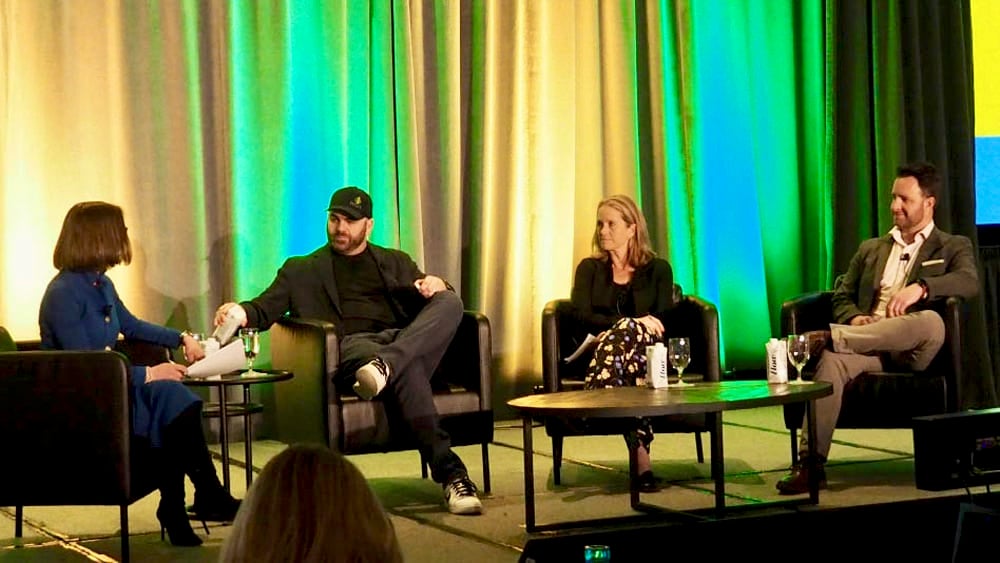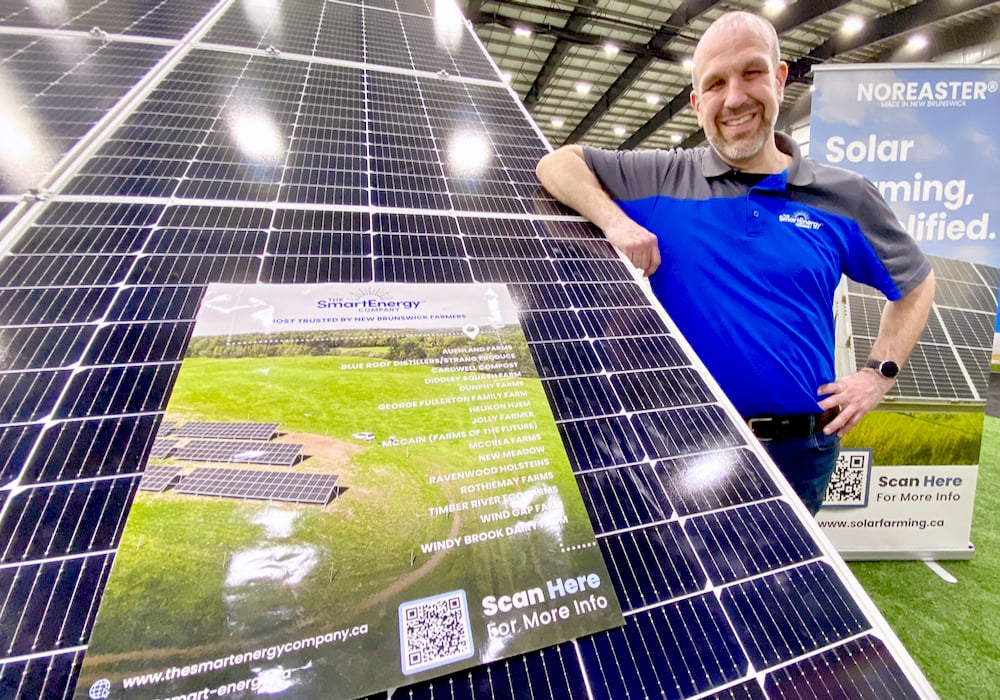Agriculture needs better frame for carbon value, says panel

Glacier FarmMedia – The agriculture industry can still get a hand on the reins of climate change discussions, said members of a panel at the 2024 Canadian Crops Convention in Winnipeg.
Read Also


Smart Energy Company brings the Noreaster solar solution to Ontario
A New Brunswick-based company is offering personalized micro-solar farm systems to Ontario farmers to help them lower on-farm electricity costs…
Why it matters: Farmers are being pushed to be more sustainable and to have evidence to support sustainability claims.
Kristjan Hebert was the farmer voice on the panel. He is president and CEO of the Hebert Group and managing partner of Hebert Grain Ventures, a 30,000-acre grain and oilseed operation in southeastern Saskatchewan.
He was joined by Nick Betts, managing director for the Canadian Alliance for Net Zero Agri-Food, a fledgling group consisting of food processors, food retailers and organizations with a mission to promote sustainability of the agri-food sector. Liz Hunt brought the larger corporate perspective as Syngenta’s head of sustainable and responsible business.
Hebert said that when he thinks about climate change and sustainability, it’s intertwined with the success of his business.
“Our legacy statement is to leave the land, financial statements, industry and community in a better state, generation after generation. To me, that’s what sustainability is for our business.”
But farmers can’t bear that entire burden, he added. Industry partners must pitch in.
“In our society, we spend too many hours trying to determine how we solve the problem. We need to focus on who can solve this problem. Who can we get in the room, in order to get more good people in the room to solve the problem? Because none of us have time to go by ourselves.”
Hunt said Canadian farmers have a lot to offer.
“Canadian farmers are great farmers and can show the world what great farming looks like,” she said, pointing to the example of no-till farming that is successful, profitable, productive and sustainable.
Betts expanded on that idea.
“We have a huge opportunity to be a leader in the world,” he said. “We have smart farmers. We have smart industry and we have the technology. When you put all of those factors together, there’s an opportunity to demonstrate scale.”
Betts also said there’s simplicity to Canadian agriculture compared to other big players like China or the United States.
“It’s easier to mobilize. It’s more agile and nimble to be able to demonstrate concepts,” he said. “That gives us the benefit of taking these tools, using them and shaping that rulebook to what we want it to be globally. It’s an opportunity that I don’t think we’ve tapped at all.”
Better marketing needed
Hebert said Canada has advantages but he worries the country is dropping the ball when it comes to marketing its expertise. Canadian farmers have advanced knowledge of sustainable practices, but the average citizen might not see that.
Hebert was at COP28 last year. Just before the climate conference, a report from the Global Institute for Food Security gave Canada high grades on sustainable food production compared to the rest of the world.
Despite that, the Canadian government said nothing about the report at the conference.
“We are producing the lowest emission metric tonnes of crop commodities in the world,” said Hebert, referencing the report. “So, if you’re focused on global emissions and you’re buying commodities, you should buy them from Canada. And it didn’t even get mentioned. That’s a problem.”
He suggested the government shouldn’t have responsibility for telling agriculture’s story.
“What we need is a partnership between producers and industry to be bold leaders, create the path, create the game and say to the government, ‘we just need a referee,’ because I do not want them to be players in the game,” said Hebert.
Betts pushed back.
“From an incentivization and investment perspective, the stuff that we’re doing around carbon markets and incentivizing market creation is an opportunity that the government has a role in,” he said.
“Towards our goal of net-zero carbon, government has a factor to play, whether it’s municipal, provincial or federal.”
A recent RBC report said greenhouse gas emissions will increase if Canadian farmers maintain current practices. Hebert said the discussion must shift its baseline on carbon. Carbon intensity is a better measure than measuring carbon in absolute terms, he said.
“Nowhere in that report did they talk about the carbon that is sequestered in agriculture. We don’t really want to talk about sequestration because we don’t have a simple MRV (measurement, reporting and verification). We hope to have that solved in the near future.”
It’s crucial to establish a value for carbon, panellists agreed.
“If carbon is so valuable, let me have a carbon asset on my statement that I can borrow against and invest in my farm,” said Hebert. “There’s a whole bunch of ways to unlock this value of carbon.”
Betts said agriculture should be viewed as a canvas.
“I’m told the two important things in a painting are the proportion and the perspective,” he said. “Together as an industry, we can paint that picture with those proper proportions and perspectives.”
He agreed that carbon intensity is more useful than absolute carbon because it adds needed perspective.
Hunt highlighted Syngenta’s role in agricultural innovation.
“Whether that’s bringing new crop protection products to market or new seeds, technologies, expanding into biologicals or digital technologies, that’s what we do best,” she said.
Syngenta has a big platform and is a global company with farmers central to the stories it tells.
“Consumers really see farmers as heroes. They believe in farmers and trust farmers,” she said. “If we lean into that, we can really help to bring those stories to life.”
– Don Norman is a reporter with the Manitoba Co-operator.
Source: Farmtario.com

